Life after giving birth is already tough: recovery, postpartum struggles, sleepless nights, and caring for a newborn. Now imagine adding a toxic mother-in-law and an unsupportive husband into the mix; it’s a complete nightmare.
For instance, one woman shared how she gained weight after delivery while struggling with postnatal depression. Instead of offering support, her mother-in-law fat-shamed her, and her husband cruelly admitted he no longer found her attractive. But she didn’t let their toxicity break her. Instead, she chose to divorce him and take control of her life.
Postnatal depression can take a heavy toll on a woman’s health and well-being

Image credits: pvproductions / freepik (not the actual photo)
One woman shared how slapping her MIL after a cruel fat-shaming comment changed her life for the better






Image credits: fxquadro / freepik (not the actual photo)



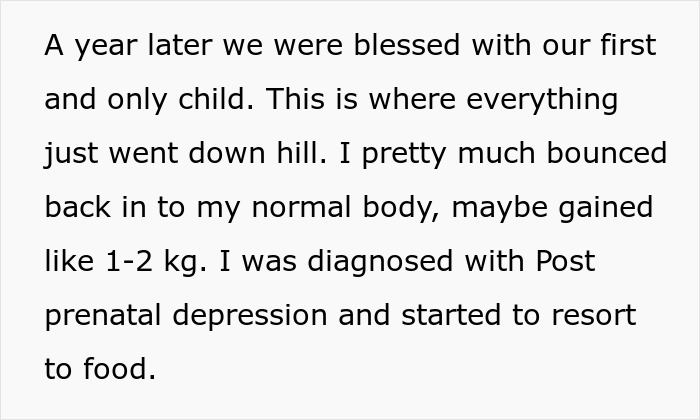

Image credits: DC Studio / freepik (not the actual photo)
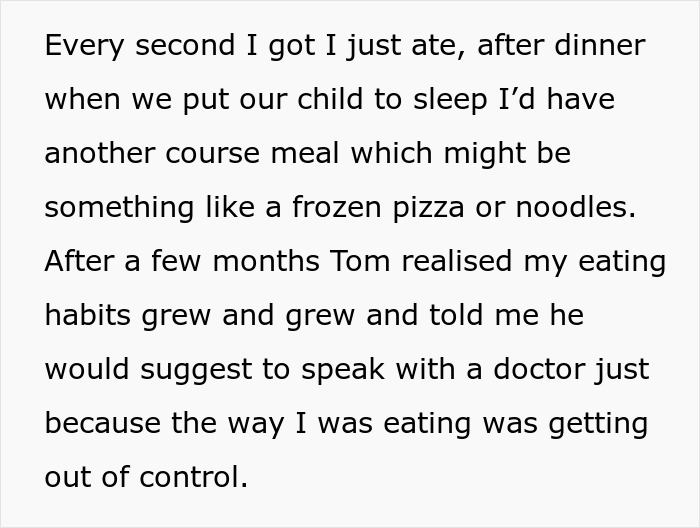
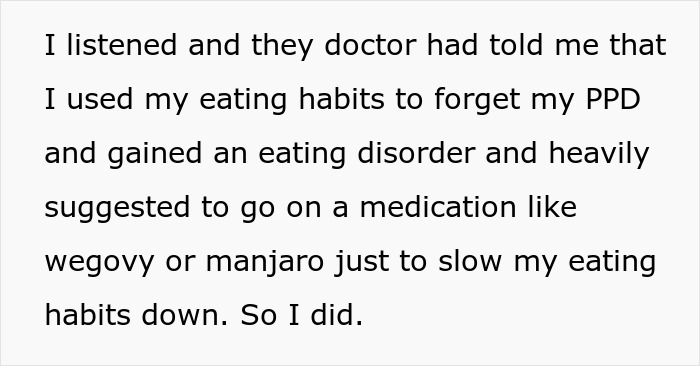


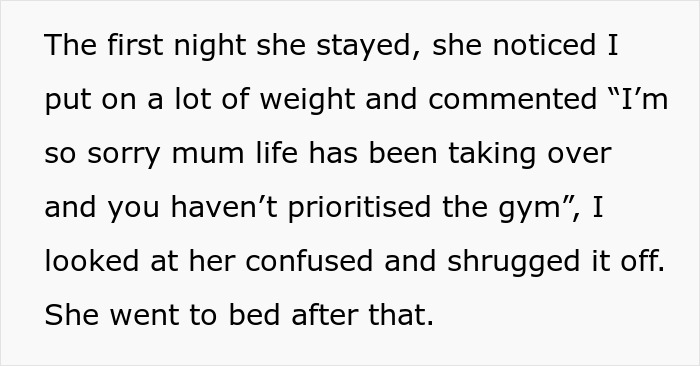

Image credits: Kampus Production / pexels (not the actual photo)




Image credits: rawpixel / freepik (not the actual photo)





Image credits: lookstudio / freepik (not the actual photo)

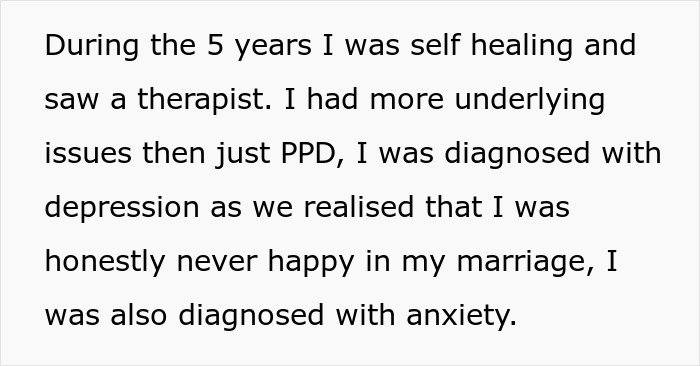
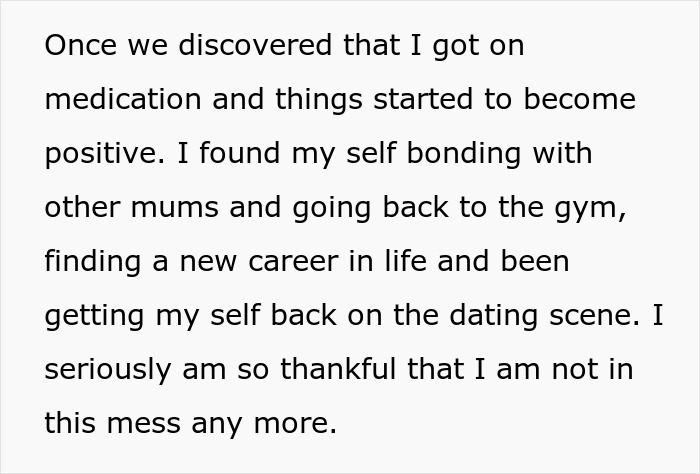
Image credits: confused_penguinss
She went on to reveal more details about her experience and perspective on the situation
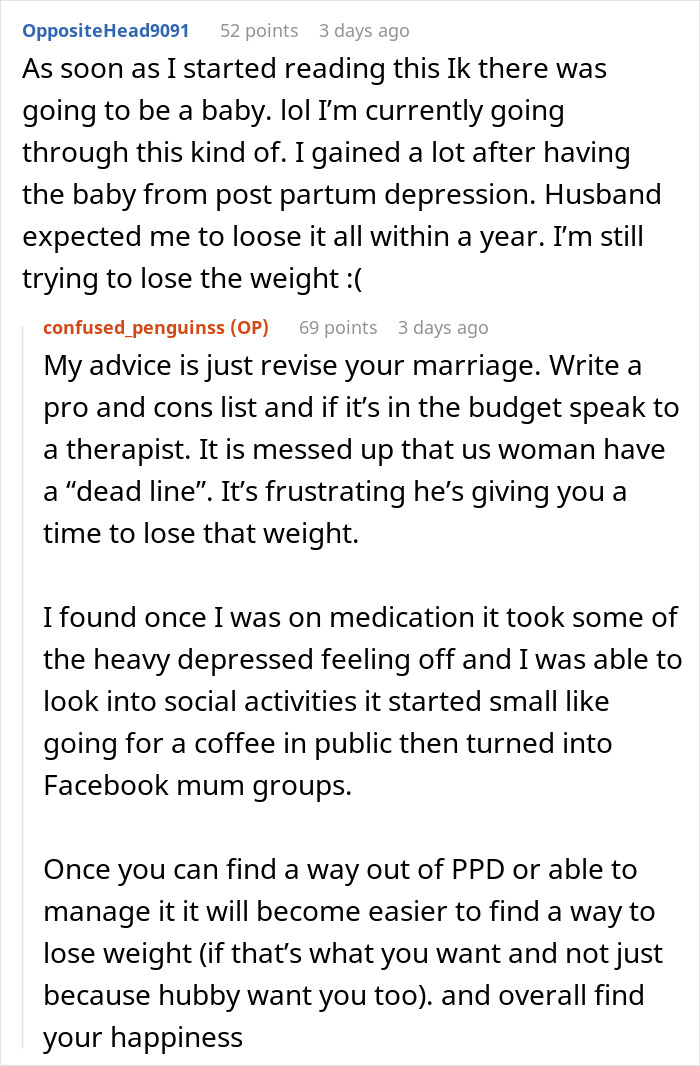


Women need the support of friends and family to fully recover after giving birth
After giving birth, a woman’s body undergoes tremendous changes. Many new moms work hard to regain their pre-pregnancy weight and strength. The journey is unique for each woman, with different timelines and challenges. Physical recovery, hormonal shifts, and emotional adjustments all play a role. Every postpartum experience is different, and patience is key. Support from family, friends, and professionals can make the process smoother. Understanding your body’s needs is the first step toward a healthy recovery.
To gain more insight, we spoke with Aradhya Jain, a yoga instructor from India with over two decades of experience. She specializes in guiding women to regain strength, flexibility, and confidence after pregnancy. Aradhya emphasizes that every woman’s recovery is unique, and personalized guidance is essential. She has helped countless new mothers navigate postpartum challenges safely and effectively. Yoga, she explains, is not just about fitness; it’s about reconnecting with your body.
“Postpartum yoga is a gentle, low-intensity practice designed to support a woman’s recovery after childbirth,” Aradhya explains. It helps rebuild core strength, improve flexibility, and relieve tension in the back, hips, and shoulders. The practice is most beneficial during the first three months after delivery, though it can continue for longer depending on individual needs. Beyond physical benefits, it also helps new mothers manage stress, anxiety, and sleep disruptions.
“I believe every new mother should try postpartum yoga because it helps reconnect the body and mind,” Aradhya says. The gentle movements allow women to tune in to their physical changes while also calming the mind. This mindful approach encourages self-awareness and patience during the recovery journey. Yoga can also boost confidence as mothers gradually regain strength and mobility. The focus is on progress, not perfection, making it suitable for every postpartum body.
Practicing yoga can help new moms feel calmer, more balanced, and connected to their bodies
“Postpartum yoga can also help manage mood swings and emotional fluctuations that are common after childbirth,” Aradhya explains. Hormonal shifts, sleep deprivation, and new responsibilities can take a toll on mental health. Gentle yoga practices, combined with controlled breathing, provide a natural outlet for releasing tension. Over time, mothers often notice a significant improvement in their overall emotional balance.
“Postnatal yoga is excellent for regaining strength in the abdominal muscles,” Aradhya notes. This is particularly important for mothers who have had a C-section, as abdominal muscles can feel weak and stretched. Targeted yoga movements help rebuild core strength safely, reducing discomfort and improving posture. A strong core aids in everyday activities, from lifting the baby to resuming normal routines.
“Breathing exercises, combined with Kegel techniques and proper lifting during yoga poses, strengthen the pelvic floor,” Aradhya explains. These practices tone muscles, improve blood circulation, and reduce the risk of postpartum complications. Strengthening the pelvic floor supports bladder control, core stability, and overall mobility.
“Of course, one should always consult a doctor before starting any postpartum exercise,” Aradhya emphasizes. Medical clearance ensures that both mother and baby are safe during physical activity. That said, she has seen many women experience remarkable benefits from gentle postnatal yoga.
“I also believe postpartum yoga is a wonderful way for the mother and baby to bond,” Aradhya concludes. Gentle movements and breathing exercises can be shared with the baby, fostering comfort and connection. These moments of closeness help the baby feel secure while supporting maternal emotional health.
In this case, it seems the author was able to reclaim her life and well-being after leaving her husband. Her mother-in-law’s hurtful comments may have been the catalyst that pushed her toward making a positive change. What do you think about her decision? Share your thoughts in the comments below.
Many people applauded her for breaking free from the toxicity




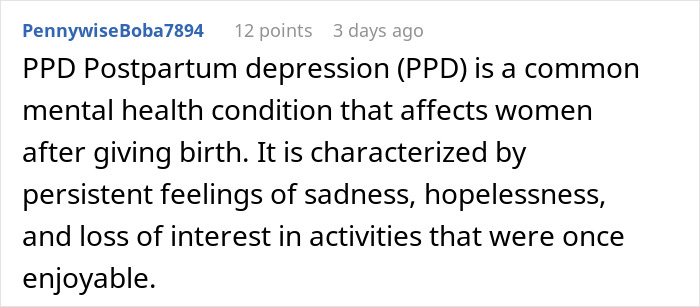













Another person even opened up about their own struggles with a difficult mother-in-law

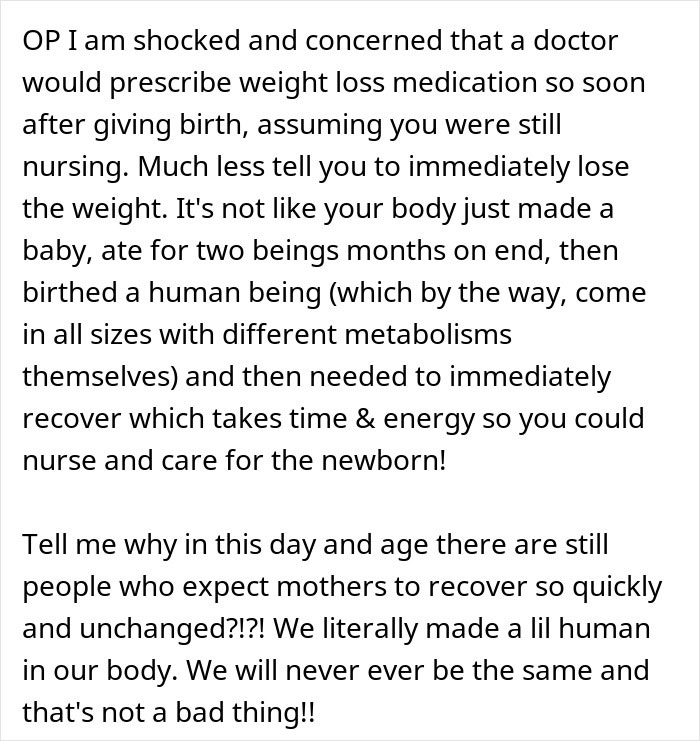
 Follow Us
Follow Us





